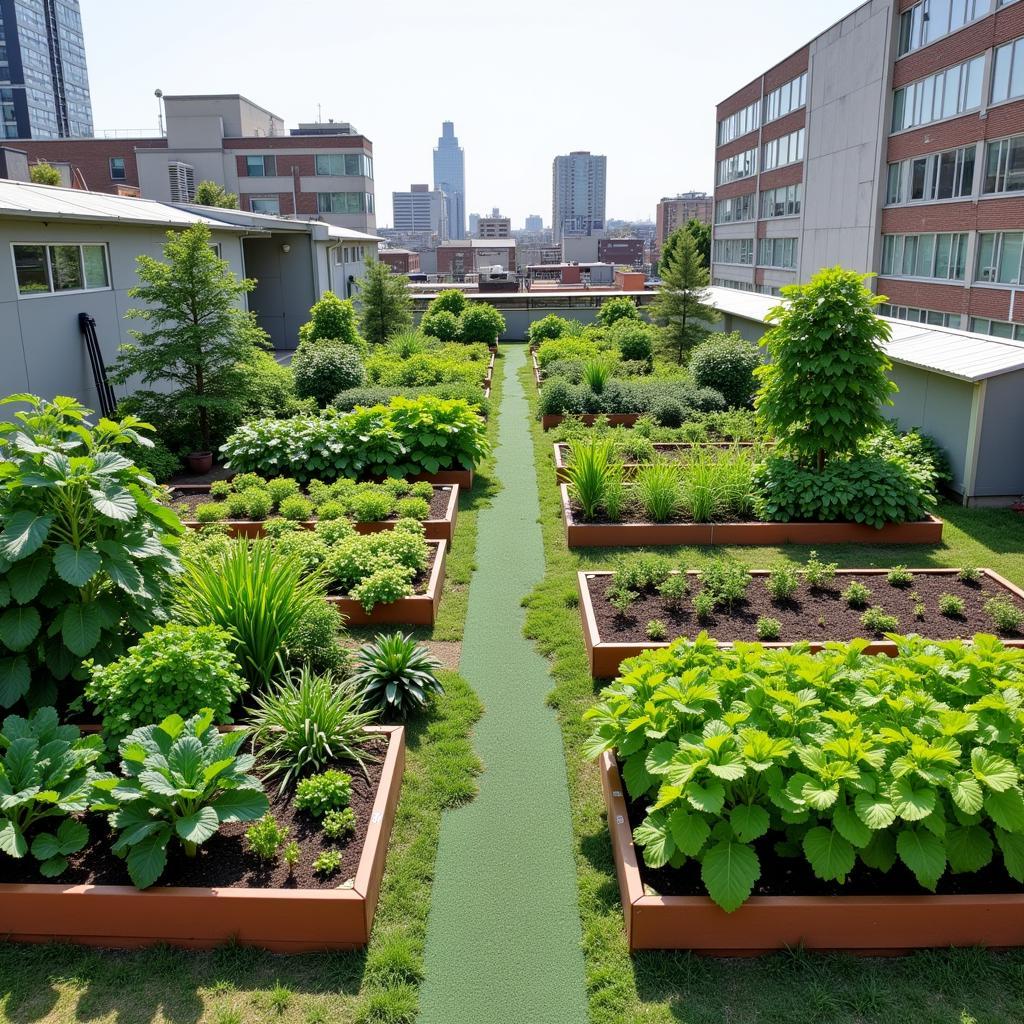Urban farming and food security have become increasingly prevalent topics in IELTS Writing Task 2 examinations, appearing in various forms over the past few years. Based on analysis of recent exam patterns, this theme frequently emerges in Advantage/Disadvantage, Discussion, or Problem/Solution essay types. Let’s explore a recent exam question that exemplifies this trend.
How urban farming can support food security has become a critical topic as cities worldwide face growing food demands. The following question appeared in a recent IELTS exam:
Some people believe that urban farming can solve food security problems in cities. To what extent do you agree or disagree with this statement?
Analysis of the Question
This is an Agree/Disagree essay that requires:
- A clear position on whether urban farming can address food security issues
- Supporting arguments with relevant examples
- A well-structured response with coherent paragraphs
- A balanced perspective considering multiple aspects

Sample Essay 1 (Band 8.5)
In recent years, urban farming has gained significant attention as a potential solution to food security challenges in metropolitan areas. While I largely agree that urban agriculture can contribute to addressing food security issues, I believe its impact depends on various factors and implementation strategies.
Urban farming offers several compelling advantages that support food security. Firstly, it significantly reduces the distance between food production and consumption points, thereby minimizing transportation costs and ensuring fresher produce for city dwellers. For example, rooftop gardens in Singapore produce thousands of tons of vegetables annually, directly supplying local markets and restaurants. Secondly, urban farming creates sustainable food systems by utilizing otherwise unused spaces such as vacant lots and building tops, similar to how role of technology in reducing food waste has revolutionized food preservation.
However, urban farming faces certain limitations that affect its ability to fully resolve food security issues. The primary constraint is space availability, as cities already struggle with housing and infrastructure demands. Additionally, the initial setup costs can be substantial, requiring significant investment in infrastructure and training. These challenges are particularly evident in developing nations where resources are limited, though similar to how should governments incentivize organic farming, proper policy support can help overcome these obstacles.
In conclusion, while urban farming alone cannot completely solve food security problems, it represents a valuable component of a comprehensive solution. Its success depends on proper implementation, government support, and integration with other food security measures.
Sample Essay 2 (Band 6.5)
Nowadays, many people think urban farming can help solve food problems in cities. I agree with this idea because it has many benefits for city people.
First, urban farming helps people get fresh food easily. When people grow vegetables on their balconies or in community gardens, they can eat fresh vegetables anytime. This is better than buying food from far away places. Also, it saves money because people don’t need to buy expensive vegetables from shops.
Second, urban farming teaches people about food growing. Many city children don’t know how vegetables grow. When they see plants growing in urban farms, they learn about nature and healthy food. This is important because impact of drought on food production shows we need to understand food better.
However, urban farming has some problems too. Growing food in cities needs space and money. Not all people have big balconies or gardens. Sometimes the weather is bad for growing plants. These problems make urban farming difficult for some people.
In conclusion, I think urban farming is good for food security but it cannot solve all food problems. Cities need other ways to get food too.
Score Analysis
Band 8.5 Essay:
- Task Response: Clear position with nuanced analysis
- Coherence and Cohesion: Logical organization with sophisticated linking
- Lexical Resource: Advanced vocabulary naturally used
- Grammatical Range: Complex structures without errors
Band 6.5 Essay:
- Task Response: Clear but simpler ideas
- Coherence and Cohesion: Basic organization
- Lexical Resource: Limited but adequate vocabulary
- Grammatical Range: Simple structures with some errors
Key Vocabulary
- food security (n) /fuːd sɪˈkjʊərəti/ – reliable access to sufficient food
- urban farming (n) /ˈɜːbən ˈfɑːmɪŋ/ – agricultural practices in cities
- sustainable (adj) /səˈsteɪnəbl/ – environmentally maintainable
- metropolitan (adj) /metrəˈpɒlɪtən/ – relating to a large city
- infrastructure (n) /ˈɪnfrəstrʌktʃə/ – basic physical systems of an area
For practice, try writing your own essay on this topic and share it in the comments. Consider also exploring related topics like should genetically modified crops be used to solve food scarcity for additional perspective.